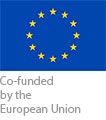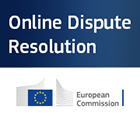Consumers can buy from any European web store, but often they are not aware that these web stores are not obliged to deliver anywhere in Europe
Geo-blocking on the Internet has been banned in Europe since December 2018. Anyone, irrespective of their nationality, location or place of residence, can buy from any European web store. However, are web stores upholding this new consumer right? The European Consumer Centre (ECC) Belgium, the contact point for consumers who have suffered infringements of the ban on geo-blocking, is analysing complaints received (36 in total) during the first 4 months of being a contact point. One in four complaints is unfounded. 62% of these complaints relate to the sellers’ refusal to deliver items to the buyer's home country. This suggests that consumers are not aware that web stores are not obliged to deliver anywhere in the EU.
European rules issued on 3 December 2018 banned geo-blocking on the Internet. This means that consumers can now access any European website or mobile application, irrespective of their nationality, location or place of residence. What is the benefit of this? Being able to shop like a local, choosing from a wider range of products and comparing prices is now much easier. For instance, online shoppers can no longer automatically be diverted to the web store’s Belgian website and they can always take advantage of the cheapest offer.
Ban on geo-blocking: four months on
Consumers who are discriminated against on the basis of their nationality, location or place of residence when buying goods online can contact ECC Belgium for information and support in a dispute with a trader.
During the first four months as a contact point, ECC Belgium received 36 complaints concerning geo-blocking that reported a total of 50 infringements of the rules on geo-blocking. 40% of the alleged infringements and one complaint in four proved to be unfounded. 62% of the unfounded complaints relate to the seller’s refusal to deliver to the online shopper’s home country.
“This suggests that consumers are not always familiar with the rules on geo-blocking. They do know that they can shop at any European web store since the ban on geo-blocking. What they don’t know is that a web store is not obliged to deliver in another European country (i.e. not their own country). Price differences or a variation in what’s on offer between, for example, a .be and a .nl website are not considered infringements of the rules,” stated Karen Ghysels, Director of ECC Belgium. “Familiarity with the rules can prevent a lot of frustration. The European Consumer Centre hopes to help bring about an improvement in this situation.”
ECC Belgium also received complaints against several major operators such as Zalando.nl and .de, Coolblue.nl, MediaMarkt.nl and Wehkamp.nl. 39% of these complaints were targeted at Dutch web stores, 36% at German and 11% at French web stores.
Do the rules apply to all online purchases?
The ban on geo-blocking applies to all consumer goods, electronic and non-electronic services. Exceptions relate to services that provide access to copyright-protected content (e.g. online music, e-books, software and online games, etc.), audiovisual, health and social services.
What about payment?
Online traders are free to choose which payment options they offer their customers and which currencies they accept. If online shoppers pay using one of the payment methods on offer, the web store must accept the payment, even if the card is issued by a financial institution in another EU country or the bank transfer is made from another EU member state.
And what about delivery?
Online sellers are not obliged to deliver to every EU country. Have you bought a product from a foreign website and is the seller refusing to deliver to Belgium? If so, you can organise delivery yourself or collect the product from an agreed collection point.
Examples of valid complaints
- I am unable to register with a web store in another EU country.
- The web store is refusing payment through a Belgian bank account.
Examples of unfounded complaints
- The seller is refusing to deliver to Belgium.
- I cannot download music from a German app store.
- The article I want to order is available on the web store’s .fr website, but not on the .be website.
- The article I want to order is more expensive on the web store’s .be website than on the .de website.
European Commission survey results
The European Commission also took stock seven months after the new rules against unjustified geo-blocking entered into force. The survey shows that Europeans are in general aware of these rules and that there is an increasing interest in digital cross-border content like music and videos, not covered by the current rules.
About ECC Belgium
The European Consumer Centre (ECC) Belgium offers free help and advice to consumers before and after they make a purchase in another EU member state. Together with colleagues across its European network, it aims to find an amicable solution for issues with a foreign trader, because consumer rights don’t stop at the border. The Belgian office, staffed by 8 people, is based in Brussels. The European network comprises 30 consumer centres: one in every EU member state, one in Norway and one in Iceland. This so-called ECC-Net was established in 2005 by the European Commission in conjunction with the EU member states in order to bolster consumer confidence in the internal market.
PRESS CONTACT
Karen Ghysels: 02 894 20 70 – 0497 59 24 89 – communication@eccbelgium.be
Are you interested in more consumer news?
Register for our newsletter in Dutch or in French.
This press release was funded by the European Union’s Consumer Programme (2014-2020). This project is co-funded by OIPC, a non-profit organization from Test Achats, and the FPS Economy, SMEs, Self-Employed and Energy.
The content of this press release represents the views of the European Consumer Centre Belgium only and it is his/her sole responsibility; it cannot be considered to reflect the views of the European Commission and/or the Consumers, Health, Agriculture and Food Executive Agency (CHAFEA) or any other body of the European Union. The European Commission and the Agency do not accept any responsibility for use that may be made of the information it contains.


